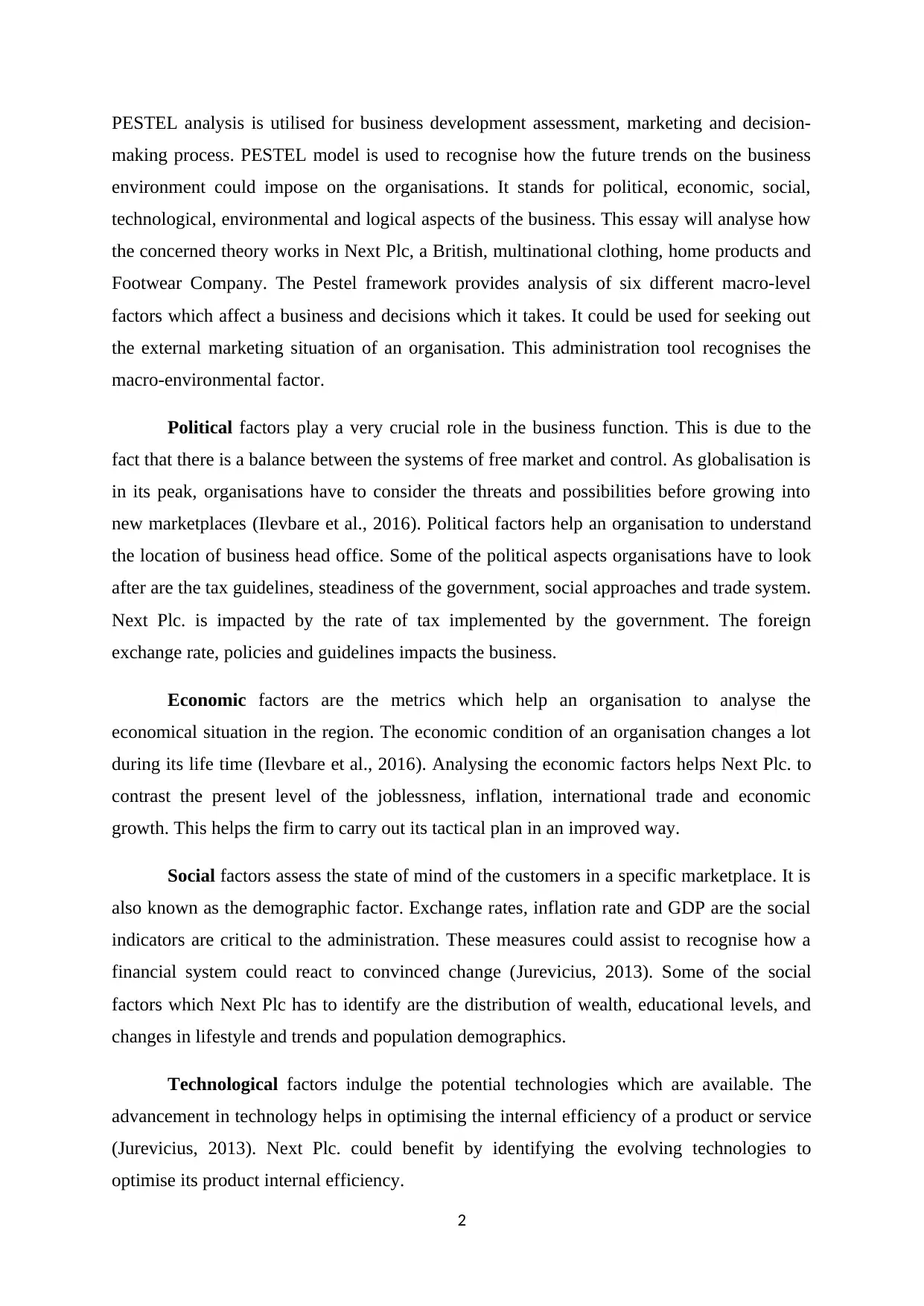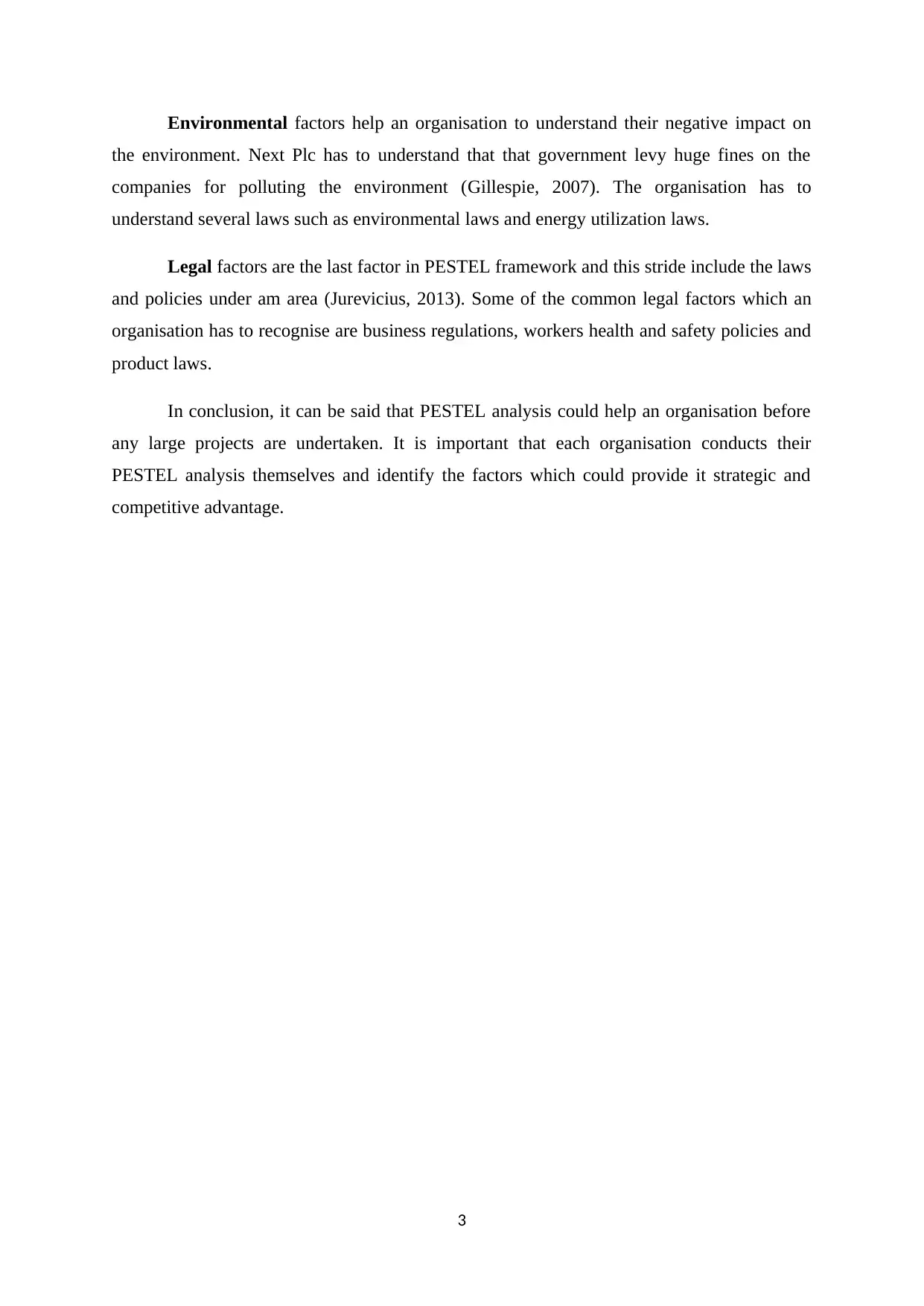Business Management Essay: PESTEL Analysis of Next Plc and Development
VerifiedAdded on 2024/05/23
|4
|699
|385
Essay
AI Summary
This essay provides a PESTEL (Political, Economic, Social, Technological, Environmental, and Legal) analysis of Next Plc, a British multinational clothing, home products, and footwear company. It emphasizes the importance of understanding macro-environmental factors for strategic decision-making and business development. The analysis covers how political factors like tax guidelines and government stability, economic factors such as unemployment and inflation, social factors including lifestyle changes and population demographics, technological advancements, environmental concerns, and legal regulations impact Next Plc's operations. The essay concludes that conducting a thorough PESTEL analysis is crucial for organizations to identify strategic and competitive advantages before undertaking significant projects.
1 out of 4










![[object Object]](/_next/static/media/star-bottom.7253800d.svg)